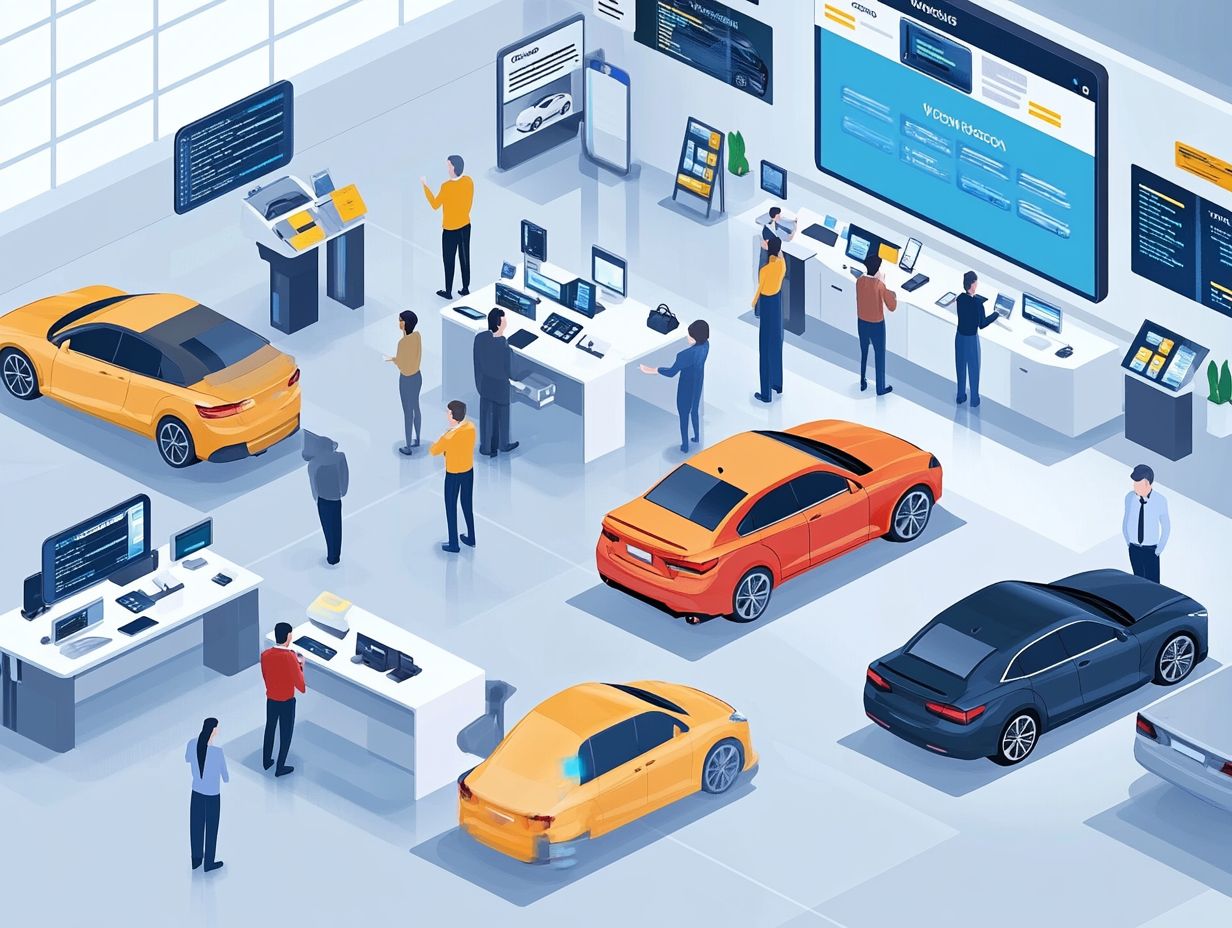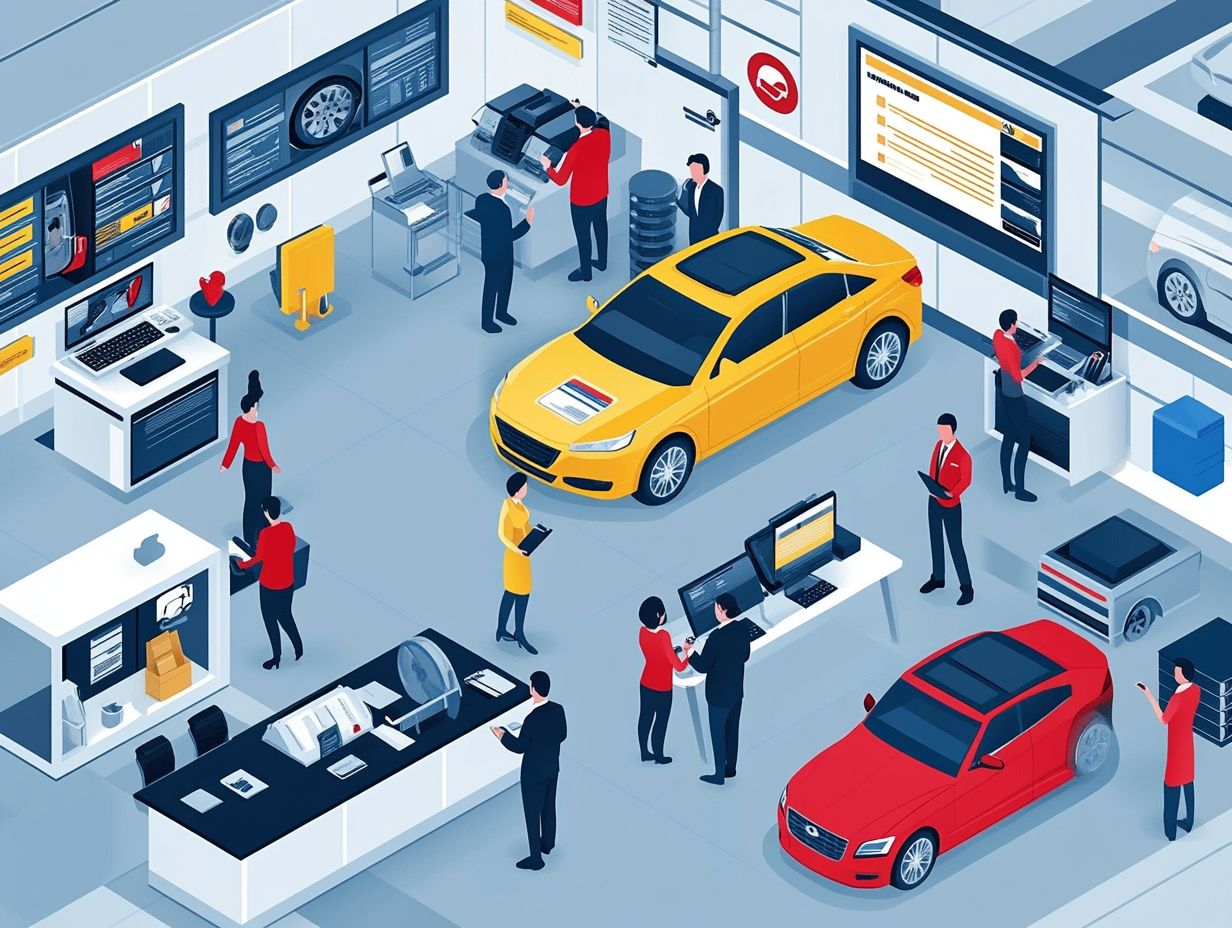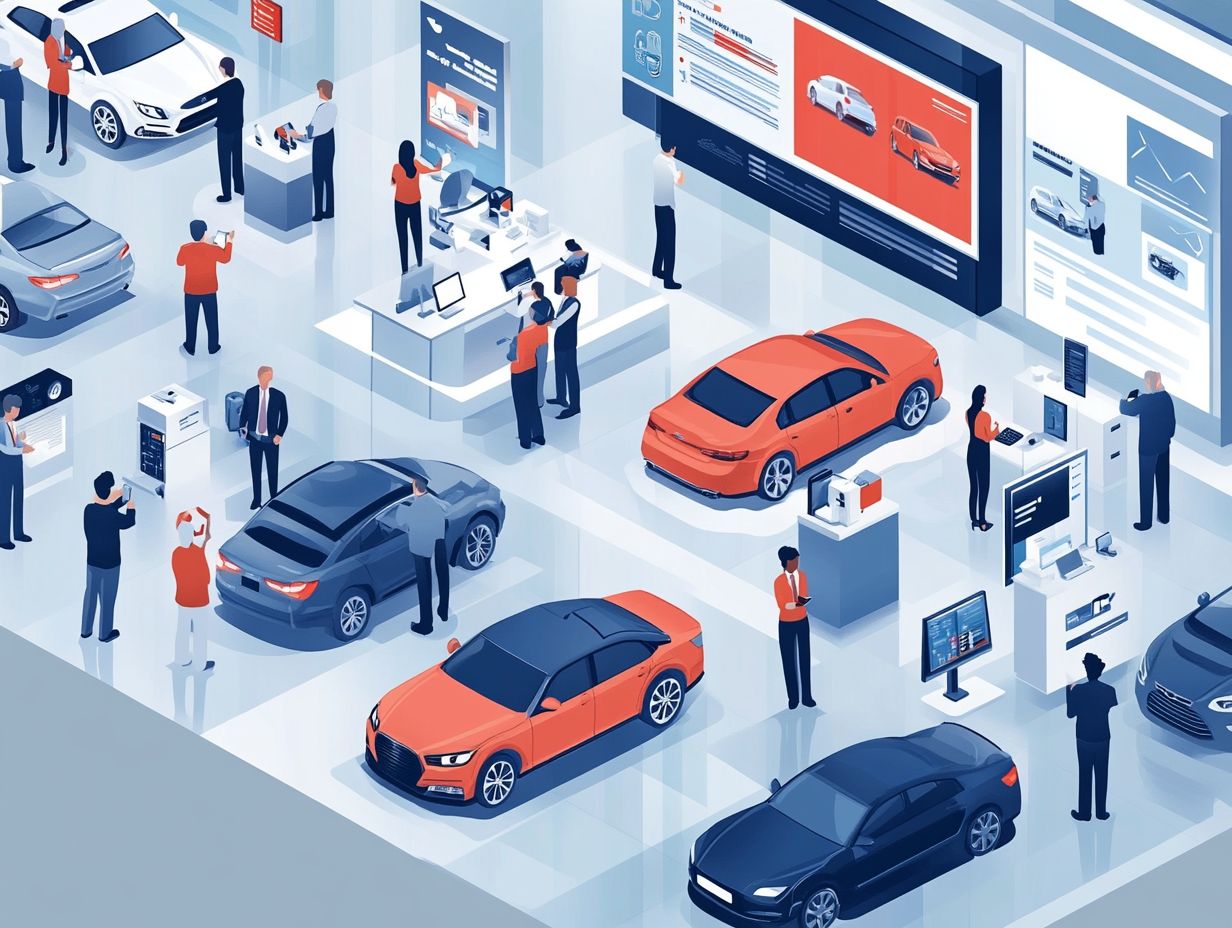24. The Importance of CRM in the Automotive Sector
Customer Relationship Management (CRM) is essential for businesses across many sectors, including the automotive industry.
This article explores how CRM improves customer interactions, boosts sales, and streamlines service management in automotive companies.
You will learn about the core benefits, the challenges of implementation, and best practices shaping the future of CRM in this dynamic field.
Let s examine the transformative power of CRM in the automotive sector!
Contents
- Key Takeaways:
- Understanding CRM in the Automotive Sector
- Benefits of CRM for Automotive Businesses
- Implementing CRM in the Automotive Sector
- Challenges and Solutions for CRM in the Automotive Sector
- The Future of CRM in the Automotive Sector
- Frequently Asked Questions
- What is CRM and why is it important in the automotive sector?
- How does CRM benefit automotive companies?
- What are some key features of CRM in the automotive sector?
- How can CRM help with customer retention in the automotive sector?
- Can CRM be integrated with other systems in the automotive sector?
- Is CRM only useful for large automotive companies?
Key Takeaways:

- CRM is crucial for improving customer retention and loyalty.
- It helps manage sales and services efficiently.
- Implementing CRM requires careful planning but can overcome common challenges.
- The future of CRM is evolving with new trends and innovations.
Understanding CRM in the Automotive Sector
Understanding Customer Relationship Management (CRM) is vital for improving customer interactions and optimizing sales processes.
CRM systems provide a centralized database that enhances efficiency and boosts customer satisfaction.
What is CRM and Why is it Important?
CRM includes the systems and strategies to manage interactions with current and potential customers.
In the automotive sector, effective CRM combines sales automation, customer support, and marketing tools to enhance the customer experience at every step.
By analyzing customer data, CRM systems help you tailor offerings and communications, strengthening connections with your clients.
This approach builds customer loyalty, drives sales, and expands your market share.
Using CRM effectively allows you to anticipate needs, respond quickly, and deliver personalized outreach that resonates.
Benefits of CRM for Automotive Businesses
Implementing a comprehensive CRM system unlocks many advantages for your automotive business.
You will see improved customer retention, greater loyalty, and optimized sales processes.
Improved Customer Retention and Loyalty

Improved customer retention and loyalty are significant benefits of using a CRM system.
It facilitates personalized communication and gives valuable customer insights.
By using these insights, you can customize your interactions and create targeted marketing campaigns that encourage repeat business.
With effective CRM strategies, you can meet customer needs and ensure timely responses, enhancing satisfaction.
This refined approach strengthens relationships and boosts brand loyalty, making customers feel valued and understood.
Efficient Management of Sales and Services
Efficient management of sales and services stands out as a significant advantage of CRM systems. These tools streamline your sales processes, automate service reminders, and enhance your email marketing efforts.
CRMs play a vital role in enhancing customer interactions by centralizing data. This allows your sales teams to track leads with precision. They can tailor their outreach strategies more effectively.
The automation features within CRM minimize manual tasks and guarantee timely follow-ups and responses. This significantly boosts your chances of successful conversions. Enhanced operations enable quicker problem resolution.
Your service teams can tackle customer inquiries and issues with greater speed and accuracy, ultimately leading to improved customer satisfaction and retention.
Implementing CRM in the Automotive Sector
Implementing CRM in the automotive sector demands a strategic approach. Concentrate on best practices to build a solid customer database and leverage sales forecasting tools, as discussed in how CRM drives efficiency in the manufacturing sector, to elevate your performance indicators.
Key Considerations and Best Practices
When implementing a CRM system, key considerations and best practices come into play, especially regarding user engagement and creating effective follow-up processes.
To ensure a seamless transition and boost adoption rates, prioritize training sessions that enable your team to fully harness the platform s features. Encouraging feedback from your team can also be a game changer, paving the way for continuous improvement and allowing you to make adjustments based on real user experiences.
Integrating data analytics tools is crucial, as they provide insights into customer behavior that can guide your personalized communication strategies. This approach streamlines follow-ups and nurtures deeper relationships with clients, enhancing their satisfaction and loyalty over time.
Challenges and Solutions for CRM in the Automotive Sector

The automotive sector presents numerous CRM challenges, particularly when it comes to understanding customer needs and making informed, data-driven decisions. To address these challenges, it’s crucial to consider the must-have CRM features for automotive dealers.
In a market that evolves at breakneck speed, staying competitive requires a keen understanding of these dynamics.
Common Obstacles and How to Overcome Them
Common obstacles in CRM implementation can hinder effective customer interactions, such as inefficient service appointment scheduling and inadequate inventory management.
These challenges create frustrating experiences for both customers and staff, leading to lost sales opportunities and a decline in customer loyalty. Businesses frequently grapple with data integration, hindering a comprehensive view of customer interactions, alongside user resistance to new technologies.
To address these issues, invest in thorough training programs that familiarize employees with the system and highlight the long-term benefits of improved operational processes.
By leveraging modular CRM solutions, you can facilitate smoother transitions, enabling the customization of features that tackle specific pain points. This approach ultimately fosters a more engaging customer experience.
The Future of CRM in the Automotive Sector
The future of CRM in the automotive sector is rapidly changing, and you must adapt to these exciting innovations that elevate digital marketing strategies and enhance customer engagement.
Embracing these advancements will enable you to redefine your approach and foster deeper connections with your audience, ensuring you stay ahead in a rapidly evolving landscape.
Start implementing CRM strategies now to transform your customer engagement!
Trends and Innovations Shaping the Industry
Several trends are shaping the CRM landscape in the automotive industry. These include user journey advertising, sales process optimization, and enhanced social media integration.
These advancements revolutionize how you interact with customers. They drive a shift toward personalized and data-driven sales strategies.
With advanced analytics and machine learning, you can tailor your marketing to fit individual customer preferences. This significantly enhances the overall buying experience.
The integration of social media into CRM systems enables real-time engagement. You can respond quickly to customer inquiries and feedback.
This multi-channel approach boosts customer satisfaction. It streamlines your sales processes, fostering stronger relationships and loyalty in a competitive market.
Frequently Asked Questions

What is CRM and why is it important in the automotive sector?
CRM (Customer Relationship Management) is a strategy to manage interactions with customers. In the automotive sector, it helps companies understand and meet customer needs, increasing satisfaction and loyalty.
How does CRM benefit automotive companies?
CRM allows companies to gather and analyze customer data. This enables targeted marketing campaigns and better customer service, leading to increased sales and profitability.
What are some key features of CRM in the automotive sector?
Key features include lead management, customer segmentation, and sales automation. These tools help streamline processes and personalize customer interactions.
How can CRM help with customer retention in the automotive sector?
CRM helps track customer interactions and preferences. By understanding their needs, companies can offer personalized experiences that build lasting relationships.
Can CRM be integrated with other systems in the automotive sector?
Yes, CRM integrates with systems like inventory management and accounting. This allows for a seamless flow of information, improving efficiency and decision-making.
Is CRM only useful for large automotive companies?
No, CRM benefits companies of all sizes in the automotive sector. Small and medium-sized companies can also gain a competitive edge by managing customer relationships effectively.






